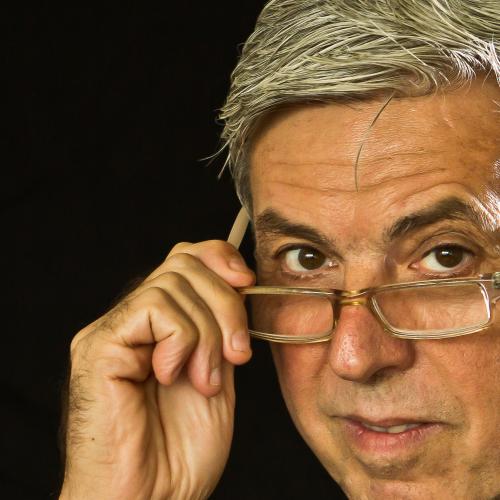Reflections, May 2012
 by Roberto Pieraccini, Director
by Roberto Pieraccini, Director
I took the job as director of the International Computer Science Institute on January 15, succeeding Professor Nelson Morgan, who led the institute for 13 years. During this time ICSI went from financial uncertainty to great stability, and thrived as one of the few independent, nonprofit research centers in computer science in the U.S. Nelson Morgan will remain at ICSI as its deputy director and as the leader of the Speech Group. I will use this column as an opportunity to share my reflections on science and technology in general, the forces that shape their progress, and how they are reflected in the work at ICSI.
But first I want to say a few words about Nelson Morgan, because without him, I am sure, ICSI would not be the great place it is now, and perhaps would not exist at all. Morgan is one of those few great men you rarely meet in life whose greatness is expressed not only by their high standards of professionalism and integrity, but also their utmost humility. I have known Morgan for more than 20 years, as a colleague and fellow scientist working in speech technology. I have always admired him as one of the researchers who follow the less trodden path with the goal of making a real difference in science. Indeed he has. I have known him mostly for his original groundbreaking work on speech processing, but as I started working with him over the past few months I realized how much he has done for ICSI, and how much of his time he has dedicated to it. That certainly sets a high bar for me as the new director.
In these first few months at ICSI I have asked everyone the same question, “What is ICSI for you,” and among many answers, one was pretty constant, especially among old timers: ICSI is my home. Some told me that after finishing their dissertation work at ICSI and receiving their doctorate, they went to work in industry for several years before they decided to return to ICSI. And the feeling was unmistakable: “I am back home!” ICSI is home to many world-class researchers, whether they are still here or not, and I want this to remain the case for them and for future generations of computer scientists and technologists. There is no place like home, there is no place like ICSI.
But besides being a home for many great scientists, ICSI is a place where science is pursued, technology created, new industries foreshadowed. There is always something new, something great going on here, from ideas about the future of the Internet to the discovery of sophisticated network security breaches that may affect all of society, from the modeling of complex and not-yet-understood linguistic phenomena, to attempts to shed light on the inner workings of the brain. Our scientists are recreating the complex mechanisms that allow humans to understand speech in spite of noise, accents, and linguistic variations; they are showing how to use the wealth of multimedia Web data to find additional related information and how to prevent its use in crime. They are modeling the complex relationships between vision and language acquisition, and they are discovering effective algorithms to help understand the complex relations among elements of genetics. Some of our scientists focus on advancing the theory of computer science and algorithms, and others on realizing computers based on new physical principles. This is ICSI, a relatively small institute with about a hundred people between researchers, visiting scholars, and staff, independent yet located next to UC Berkeley, one of the most exciting centers of computer science and engineering research in the world.
Now the question for me is how I can help all of this greatness to continue on its path and to grow. ICSI is strong and will continue to grow stronger; that is my mission. We will continue to attract the most talented young researchers, strengthen the relationships with our partner countries and establish new ones, identify potential areas of research and seed new teams, work with industry to invent a new future that will improve our society. I still have many questions about how to achieve all of that, but I am sure I will find some answers with the help of everyone here at ICSI.

